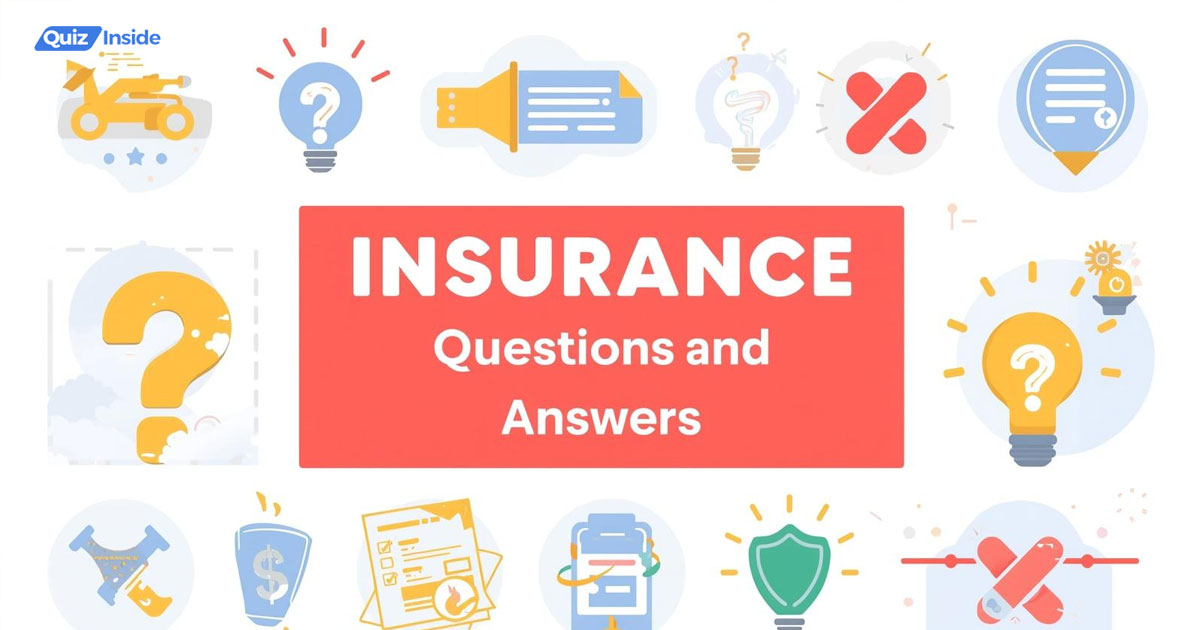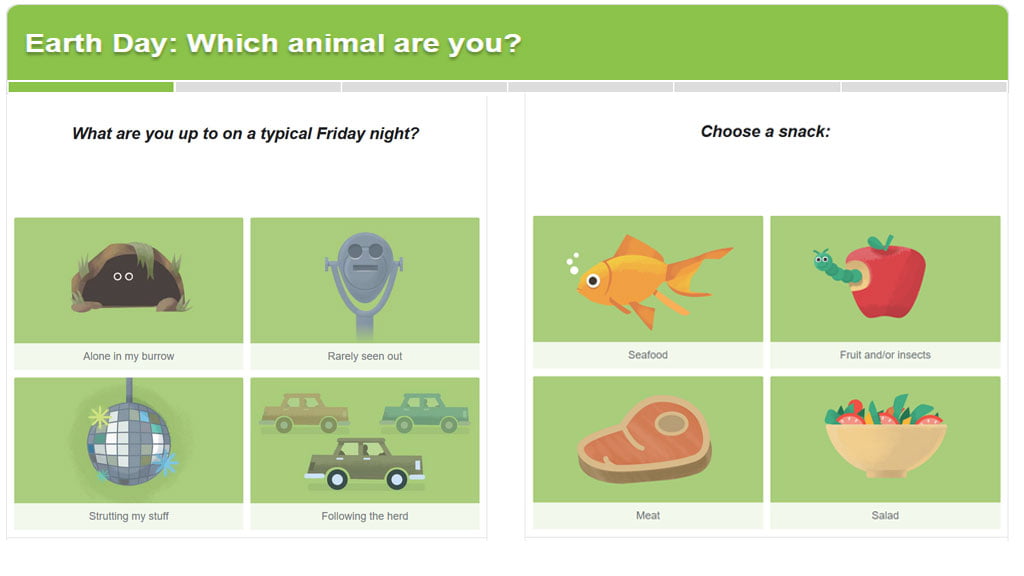Test your knowledge with these fascinating insurance trivia questions, covering everything from historical origins to modern-day policies. Discover the surprising facts and figures behind the industry that protects our world.
Introduction: Why Insurance Matters and Why Trivia is Fun
Insurance. For many, it’s a topic that brings to mind complex paperwork, monthly premiums, and the occasional phone call to an agent. But beneath the surface of this seemingly dry subject lies a rich and fascinating history, filled with intriguing facts, surprising innovations, and a truly remarkable evolution. From ancient civilizations to the digital age, the concept of sharing risk has been a cornerstone of societal stability and economic growth.
This article isn’t just a collection of questions; it’s a journey through the world of insurance, presented in a fun and engaging trivia format. Whether you’re a seasoned professional, a student of finance, or simply someone curious about how our world works, these questions will illuminate the lesser-known aspects of an industry that touches every one of our lives.
The beauty of trivia lies in its ability to transform a complex subject into a series of digestible and memorable facts. By exploring these questions, you’ll gain a deeper appreciation for the role of insurance in everything from protecting our homes and cars to ensuring the success of major business ventures. So, let’s dive in and test your knowledge. Get ready to uncover some surprising truths and maybe even win your next trivia night!

Insurance Trivia Questions And Answers
Insurance Basics
This category covers the fundamental concepts of insurance, definitions, and general principles.
Q: What is the primary purpose of insurance?
A: To protect against financial loss from unexpected events
Q: What is a premium in insurance?
A: The amount paid by the policyholder to the insurer for coverage
Q: What does a deductible refer to in insurance?
A: The amount the insured must pay out-of-pocket before insurance kicks in
Q: What is a policyholder?
A: The person or entity who owns the insurance policy
Q: What is a beneficiary in an insurance policy?
A: A person designated to receive the benefits of the policy
Q: What is underwriting in insurance?
A: The process of evaluating risk to determine policy terms and pricing
Q: What type of risk is typically insurable: pure or speculative?
A: Pure risk
Q: What does “indemnity” mean in insurance terms?
A: Compensation for loss or damage to restore the insured to their prior condition
Q: What is a claim in insurance?
A: A request made by the insured to the insurer for compensation of a covered loss
Q: What is the principle of utmost good faith in insurance?
A: Both parties must disclose all material facts truthfully and honestly
Types of Insurance
This section explores different kinds of insurance policies available to individuals and businesses.
Q: What does auto insurance typically cover?
A: Vehicle damage, liability, and sometimes medical costs
Q: What is the primary purpose of life insurance?
A: To provide financial support to beneficiaries after the policyholder’s death
Q: What is covered under homeowners insurance?
A: Damage to the home, personal property, and liability for injuries on the property
Q: What is renters insurance?
A: Insurance that covers a tenant’s personal property and liability within a rental
Q: What does health insurance help pay for?
A: Medical expenses such as doctor visits, hospital stays, and prescriptions
Q: What is disability insurance designed to replace?
A: Income lost due to inability to work from injury or illness
Q: What does travel insurance typically cover?
A: Trip cancellations, lost luggage, and medical emergencies abroad
Q: What is long-term care insurance used for?
A: To cover services like nursing home care and home health care
Q: What type of insurance protects professionals from negligence claims?
A: Professional liability insurance (Errors & Omissions)
Q: What kind of insurance covers employees for work-related injuries?
A: Workers’ compensation insurance
Health Insurance
Focuses specifically on medical insurance, plans, and terminology.
Q: What does HMO stand for in health insurance?
A: Health Maintenance Organization
Q: What is a co-pay in health insurance?
A: A fixed fee paid by the insured for covered services at the time of care
Q: What does PPO stand for in health insurance?
A: Preferred Provider Organization
Q: What is a health insurance deductible?
A: The amount you must pay out-of-pocket before the insurer starts paying
Q: What is a network in health insurance terms?
A: A group of doctors and facilities contracted to provide services at reduced rates
Q: What is an out-of-pocket maximum?
A: The most an insured will have to pay for covered services in a policy period
Q: What federal program provides health insurance for seniors in the U.S.?
A: Medicare
Q: What federal/state program provides health coverage for low-income individuals?
A: Medicaid
Q: What is the term for services not covered by health insurance?
A: Exclusions
Q: What is COBRA in health insurance?
A: A law allowing continued coverage after leaving a job (at your own cost)
Life Insurance
Covers various aspects of life insurance, from terms to types.
Q: What is the difference between term and whole life insurance?
A: Term provides coverage for a set period; whole life is lifelong with cash value
Q: What is a death benefit in life insurance?
A: The money paid to beneficiaries upon the insured’s death
Q: What is cash value in whole life insurance?
A: The savings portion that grows over time and can be borrowed against
Q: What does it mean to “surrender” a life insurance policy?
A: Cancel the policy in exchange for its cash value
Q: What is a rider in life insurance?
A: An add-on provision that provides additional coverage or benefits
Q: What does it mean when a policy is “lapsed”?
A: It is terminated due to non-payment of premiums
Q: What is a beneficiary revocable or irrevocable?
A: Revocable can be changed; irrevocable cannot without consent
Q: What is group life insurance?
A: Life insurance provided to members of a group, often through an employer
Q: What is underwriting based on in life insurance?
A: Age, health, occupation, and lifestyle
Q: What is accelerated death benefit?
A: A benefit that allows part of the death benefit to be paid early in case of terminal illness
Auto Insurance
Delves into coverage types, rules, and auto-specific insurance topics.
Q: What does liability insurance in auto coverage cover?
A: Damage and injury you cause to others
Q: What does comprehensive auto insurance cover?
A: Damage to your car from non-collision incidents like theft or fire
Q: What is collision coverage?
A: Insurance for damage to your car due to an accident
Q: What is uninsured motorist coverage?
A: Covers you if you’re hit by a driver without insurance
Q: What is a deductible in auto insurance?
A: The amount you pay out-of-pocket for damage before insurance pays
Q: What does “full coverage” typically include?
A: Liability, collision, and comprehensive coverage
Q: What factor most affects auto insurance premiums?
A: Driving history
Q: Can your credit score impact your auto insurance rate?
A: Yes, in many states
Q: What is gap insurance?
A: Covers the difference between a car’s value and what’s owed on a loan
Q: What is PIP in auto insurance?
A: Personal Injury Protection – covers medical expenses regardless of fault
Business & Commercial Insurance
Relevant to business owners and commercial insurance needs.
Q: What is general liability insurance for businesses?
A: It covers third-party bodily injury, property damage, and legal fees
Q: What is a business owner’s policy (BOP)?
A: A packaged policy combining property and liability insurance
Q: What does commercial property insurance cover?
A: Damage to a business’s buildings and contents
Q: What is professional liability insurance also known as?
A: Errors and omissions insurance (E&O)
Q: What is cyber liability insurance?
A: Covers losses from data breaches and cyber attacks
Q: What does commercial auto insurance cover?
A: Vehicles used for business purposes
Q: What is product liability insurance?
A: Covers injury or damage caused by products sold
Q: What is employment practices liability insurance (EPLI)?
A: Protects businesses against employee-related lawsuits
Q: What does inland marine insurance cover?
A: Property in transit or held by a third party
Q: What is directors and officers (D&O) insurance?
A: Protects company leaders from personal losses due to lawsuits
Claims & Adjustments
Focuses on the claims process, investigations, and settlements.
Q: What is the first step in filing an insurance claim?
A: Notify the insurer as soon as possible
Q: Who investigates and evaluates claims?
A: Claims adjuster
Q: What is a proof of loss?
A: A formal statement to the insurer detailing the amount of loss
Q: What does it mean when a claim is denied?
A: The insurer refuses to pay due to policy terms or lack of coverage
Q: What is subrogation in insurance?
A: The insurer seeks reimbursement from a third party at fault
Q: What is a settlement in insurance?
A: An agreement on the amount paid for a claim
Q: What is a claims reserve?
A: Funds set aside to pay future claims
Q: What does “in good faith” mean in claim handling?
A: The insurer must handle claims honestly and fairly
Q: Can you appeal a denied insurance claim?
A: Yes, through the insurer’s appeals process or external review
Q: What is fraud in insurance claims?
A: Filing false or exaggerated claims for financial gain
Legal & Regulatory
Explores laws, regulations, and legal structures in insurance.
Q: Which U.S. government agency oversees insurance at the federal level for flood insurance?
A: FEMA (Federal Emergency Management Agency)
Q: What does NAIC stand for in the insurance industry?
A: National Association of Insurance Commissioners
Q: What is an insurance license?
A: Legal authorization to sell or adjust insurance
Q: Who regulates insurance companies in the U.S.?
A: State insurance departments
Q: What is the purpose of the Insurance Act in many countries?
A: To regulate insurance contracts and practices
Q: What is reinsurance?
A: Insurance purchased by insurers to reduce risk exposure
Q: What law requires drivers to carry minimum auto insurance in most U.S. states?
A: Financial Responsibility Laws
Q: What is a bad faith insurance lawsuit?
A: When a policyholder sues an insurer for not honoring a claim fairly
Q: What does the term “insurable interest” mean legally?
A: A person must suffer a financial loss if the insured event occurs
Q: What is an insurance ombudsman?
A: An official who investigates and resolves insurance disputes
Industry Facts & History
Trivia about the history, statistics, and records in the insurance industry.
Q: What is considered the oldest form of insurance?
A: Marine insurance
Q: What year was Lloyd’s of London founded?
A: 1688
Q: What country has the largest insurance market in the world?
A: United States
Q: What is the world’s largest insurance company by revenue?
A: Ping An Insurance (China) or Allianz (Germany), depending on year
Q: When was the first known life insurance policy issued?
A: In the 16th century (1583, England)
Q: What major event prompted the creation of modern fire insurance?
A: The Great Fire of London in 1666
Q: What does “actuary” mean in the insurance industry?
A: A professional who assesses financial risks using statistics
Q: What is the largest health insurance company in the U.S. by enrollment?
A: UnitedHealth Group
Q: What is the fastest-growing type of insurance in the digital era?
A: Cyber insurance
Q: What is insurtech?
A: The use of technology to innovate insurance services
Fun & Unusual Insurance
A lighthearted look at strange policies and quirky facts.
Q: What body part did footballer David Beckham famously insure?
A: His legs
Q: What company offered alien abduction insurance?
A: Saint Lawrence Agency (Florida)
Q: Can you insure a wedding?
A: Yes, wedding insurance covers cancellation and liabilities
Q: Which singer insured her voice for millions?
A: Mariah Carey
Q: What is hole-in-one insurance?
A: Covers prize costs if a player hits a hole-in-one during a tournament
Q: Can you insure against werewolf attacks?
A: Some novelty insurers have offered this (humorously)
Q: What type of insurance might protect a food critic’s taste buds?
A: Taste and palate insurance
Q: Can a company insure its logo or brand?
A: Yes, through intellectual property insurance
Q: Which famous actor reportedly insured his smile?
A: Julia Roberts
Q: What does prize indemnity insurance cover?
A: Large prizes offered in contests or promotions
Q: What is the insurance term for the person or entity that provides insurance coverage?
A: Insurer
The Origins of Insurance: From Ancient Pacts to Modern-Day Practices
The story of insurance is as old as human civilization itself. Before formal policies and regulatory bodies, there were informal agreements and community-based systems of support. People understood intuitively that sharing the burden of an unexpected loss made everyone more resilient.
This early form of marine insurance highlights a fundamental principle: the distribution of risk. By placing the financial burden of a potential shipwreck on a lender, the merchant was protected from total ruin. This concept was further developed by the Phoenicians and ancient Greeks, who also relied on sea travel for trade.
FAQs About Insurance Trivia Questions
What is the most common type of insurance?
The most common type of insurance is vehicle or car insurance, due to its legal requirement in many parts of the world. Homeowners insurance is also widely held.
How does insurance work?
Insurance works by transferring risk from an individual or business to an insurance company. In exchange for a regular payment (the premium), the insurer promises to provide financial compensation for covered losses. This works because the losses of a few are covered by the premiums of the many.
Why are insurance premiums different for different people?
Premiums are different because they are based on an assessment of risk. Factors such as age, location, health, and past claims history are used by insurers to calculate the likelihood of a future loss. For example, a young, inexperienced driver is considered a higher risk than an older, experienced one.
What is the difference between an insurance agent and an insurance broker?
An insurance agent typically works for a specific insurance company and sells its products. An insurance broker, on the other hand, works independently and can shop around for the best policy from multiple companies on behalf of the customer.
What is a “rider” in an insurance policy?
A “rider” is an add-on or an amendment to a standard insurance policy that provides additional coverage for specific risks. For example, you might add a flood insurance rider to your homeowners policy.
Conclusion
Exploring insurance trivia questions provides valuable insights into the evolution and nuances of the insurance industry. From its ancient origins to modern-day practices, insurance plays a crucial role in risk management and financial security. Engaging with these trivia questions can enhance one’s understanding and appreciation of this vital sector.



